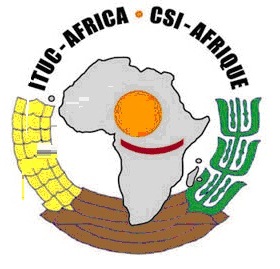
The African Regional Organization of the International Trade Union Confederation
(ITUC-Africa) strongly condemns the execution of four farm workers by members of
Alshabab Islamist group in the District of Wanleweyn of the Lower Shabelle region in
southern Somalia.
Information reaching us state that the four men, all in their 30s, were arbitrarily
arrested at their home on the night prior to their murder and were presented before
an “Islamic court” after they refused to give “Jihad contribution” and to take up guns
to fight for “jihad”. The mock judgment sentenced the four to death and they were all
executed on 31st July in the outskirts of the district.
Efforts must not be spared in ensuring the prosecution of perpetrators of this act. We
demand justice for the victims and their families.
This dastardly action is a sad reminder of the profound sectarian crisis situation in
Somalia that has continued to expose workers and citizens daily to life threatening
dangers. We call on the Somali Transition Government and the African Union to
dedicate more effort towards the resolution of the protracted conflict and to secure
peace and security in Somalia.
ITUC-Africa extends its solidarity to all Somali workers and sends profound
condolences to the families of the victims as well as to the Federation of Somali Trade
Unions (FESTU) for this unpardonable act.
Issued in Lomé, 1st August 2012
ITUC-Africa Condemns Execution of Farm Workers PDF
